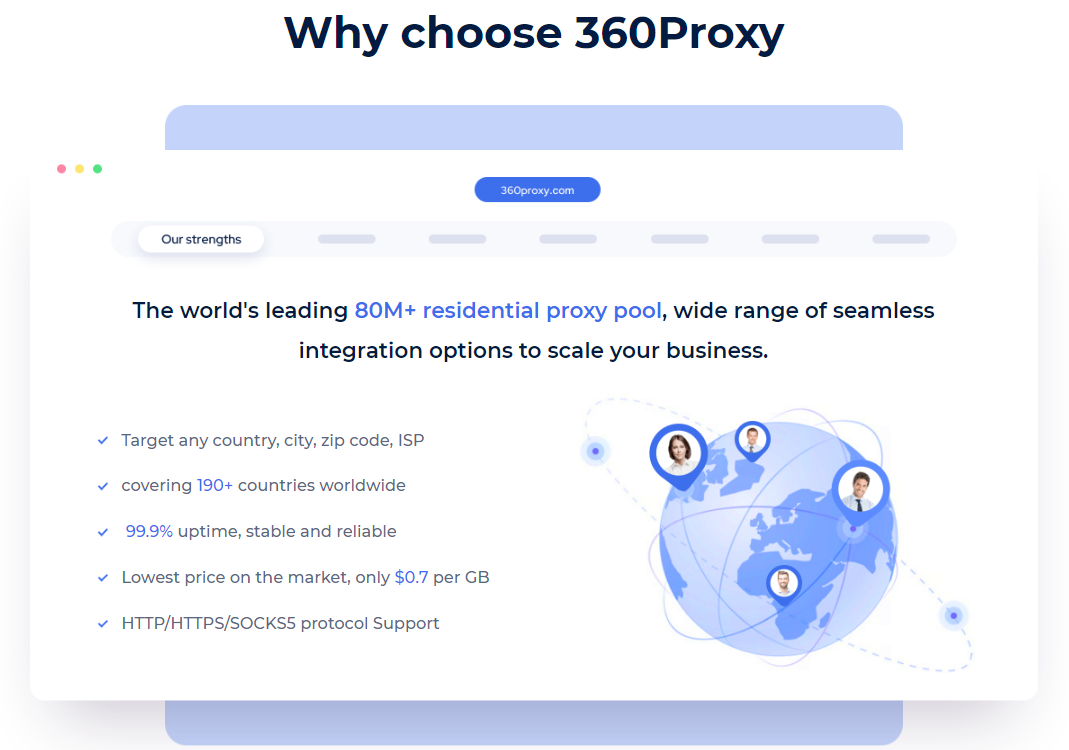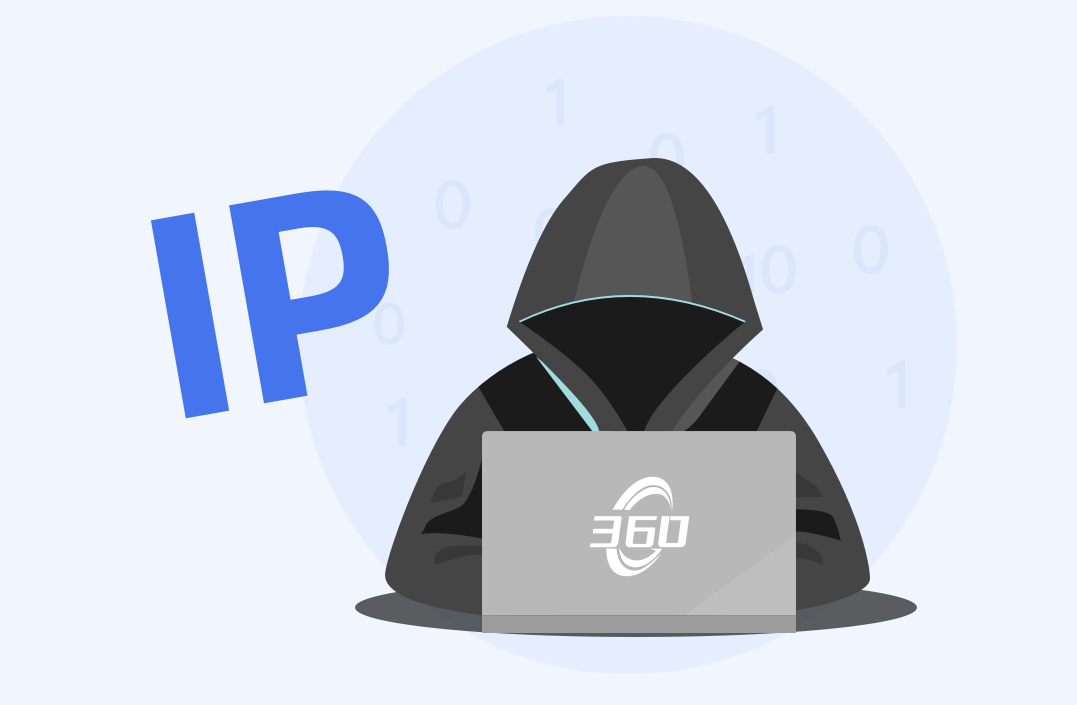The rapid development and widespread application of the Internet make the security and anonymity of network communications particularly important. In this context, IP proxy has become a key tool to achieve network access control, anonymous browsing and data security. This article will further discuss in depth the classification of IP proxies and their wide application in different application scenarios.
Classification Overview
IP proxies can be divided into multiple categories according to their types, each category has unique characteristics and application scenarios.
HTTP proxy:
As one of the most common proxy types, HTTP proxy is mainly used to process the HTTP protocol and is suitable for HTTP-based applications such as web browsing and file downloading.
HTTPS proxy:
A specially designed proxy type for the HTTPS protocol for encrypted communication, providing a more secure communication channel and suitable for scenarios with high security requirements.
SOCKS proxy:
As a general proxy protocol, it supports TCP and UDP and has a wider range of applications, such as remote server access, P2P communication, etc.
Transparent proxy:
Automatically performs proxy without any perception by users. It is mainly used for network management and monitoring to monitor and control user access behavior.
Anonymous proxy:
Hides the client's real IP address, improves user anonymity, and is often used to protect privacy.
High-anonymity proxy:
Disguises more information in the request, hiding the user's identity more thoroughly, and is suitable for scenarios with extreme privacy protection requirements.
Application scenarios of HTTP proxy
Content filtering and access control:
Enterprises can use HTTP proxy to filter content, control employees' access to specific types of websites during working hours, and improve work efficiency.
Anti-crawlers and data collection:
In view of the burden caused by crawlers on the website, HTTP proxy can limit their access frequency and protect website resources.
Ad filtering and acceleration:
HTTP proxy can intercept ad requests, increase web page loading speed, and improve user experience, especially on mobile terminals.
Application scenarios of SOCKS proxy
Cross-firewall access:
Computers in the enterprise's internal network can access external servers through SOCKS proxy to facilitate remote collaboration.
P2P communication:
Since the SOCKS proxy supports UDP communication, it is suitable for P2P applications, provides a more flexible network connection method, and promotes real-time data transmission.
Anonymous downloading and sharing:
Through SOCKS proxy, users can download and share files anonymously to ensure personal privacy and data security.
Application scenarios of anonymous proxy and high-anonymity proxy
Hide real IP:
Using anonymous proxies and high-anonymity proxies, users can hide real IP addresses, break through information barriers, and access content such as videos, social media, etc.
Protect privacy and browse anonymously:
Through anonymous proxy, users can browse anonymously on the Internet, ensuring that personal privacy is not tracked and maintaining the security of personal information.
Fight against malicious attacks:
In terms of network security, anonymous proxies and highly anonymous proxies can be used to fight against malicious attacks, making it more difficult for attackers to track and locate targets.
Application scenarios of transparent proxy
Network management and monitoring:
Transparent proxies can be used for network management to monitor and control user access behavior, thereby maintaining network stability and security.
Access control and rate limiting:
Transparent proxies can be used to control and rate limit access to specific users or specific types of traffic to ensure reasonable allocation of network resources.
The following extension points demonstrate the wide application of IP proxy in various fields
Reverse Engineering and Competitive Intelligence:
IP proxies play a key role in reverse engineering and competitive intelligence. Enterprises can use anonymous proxies to hide their real IP, prevent competitors from obtaining sensitive information, and at the same time enable targeted monitoring of competitors.
Social media management and marketing:
Through IP proxies, individuals and businesses can manage social media accounts more effectively and ensure the security and anonymity of their accounts. In addition, IP proxies can also be used to break through information barriers when conducting social media marketing on a global scale.
Accelerate and optimize cloud service access:
In the era of cloud computing, enterprises may use IP proxies to accelerate access to cloud services, optimize data transmission paths, improve response speed, and thereby improve overall business efficiency.
Online gaming and virtual reality experience:
For online gaming and virtual reality applications, SOCKS proxies can be used to improve game performance, reduce latency, and provide a smoother virtual experience, especially when global servers are required.
Web crawlers and search engine optimization:
When performing web crawling and search engine optimization, by rationally using IP proxies, you can circumvent crawler behavior, reduce the risk of being banned by search engines, and collect and analyze network information more accurately.
Anonymous voting and survey research:
When conducting anonymous voting and survey research, high-anonymity agents can ensure that the privacy of participants is protected to the greatest extent, making the research results more objective and authentic.
Internet security training and penetration testing:
When conducting Internet security training and penetration testing, transparent proxies can simulate the network environment of different users, help trainers better understand network security threats, and test the weaknesses of the system.
IP proxies play multiple roles in network communications, and each type of proxy plays an important role in specific application scenarios. Enterprises and individual users can choose the appropriate IP proxy type according to actual needs to achieve safe, anonymous and efficient network access. However, when using IP proxies, you also need to pay attention to compliance and legal regulations to ensure that the proxy services used comply with relevant regulations and maintain the healthy development of the network ecology.
360Proxy provides 100% real residential proxy resources, covering 190+ countries and regions, and 80M+ residential IP resources. To meet the different needs of users, such as media account management, ESTY and SEO, 360Proxy is a good assistant that can provide huge help!

 Username: Password
Username: Password
 Whitelist IP
Whitelist IP
 Proxy Manager
Proxy Manager
 Google Chrome Extension
Google Chrome Extension





























 Dashboard
Dashboard Sign Out
Sign Out






























 USA
USA France
France Brazil
Brazil Vietnam
Vietnam Spain
Spain









